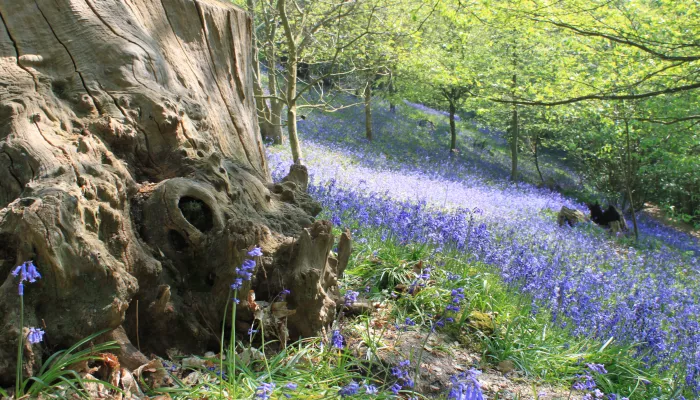Kent Wildlife Trust is a local conservation charity with over 31,000 members and 1,000 from a wide range of backgrounds and all walks of life. We are united in our belief that a healthy, wildlife-rich natural world is valuable in its own right and is also the foundation of our health, wellbeing and prosperity. People are part of nature; everything we value comes from it and everything we do has an impact on it.
We inspire people to connect with nature and take action to protect it. Nature is in trouble, but with our 20-year plan and the help of our supporters, together we can protect wildlife now and into the future.
Each Wildlife Trust has charitable objects that set out its purpose. The Charity Commission holds it to account so there is no deviation from these. Although each Trust is independent, the movement grew up together and every Trust has two main aims:
• Conserving the natural environment and
• Helping people to experience, understand and value the natural world.
Many organisations have animal welfare as a primary charitable purpose and undertake work campaigning for improved treatment of animals, whether domestic or wild. This is important work that is different to our own charitable objects.
Kent Wildlife Trust looks after a range of wild places at over 69 nature reserves – woods, meadows, lakes, moorland - with a total area of about 3,327 hectares. We stand up for the natural world in towns and countryside, at sea and in our rivers. Our planning team reviewed 422 planning applications in 2017, commenting on 108 and submitting objections to 52.
We run four education centres and help thousands of children to learn outdoors through forest schools or in their own school grounds. We give advice on wildlife habitats to thousands of farmers, businesses and other people who own and manage land. We have been at the forefront of efforts to secure protected areas in the seas around Kent, gathering 1,200 signatures for the 2018 petition supporting the designation of new Marine Conservation Zones.
We actively work with a wide range of organisations, partners, individuals, communities, and government to connect people with nature and continue managing and influencing activities across the county to create a healthy place for wildlife to flourish.
As with every Wildlife Trust, Kent Wildlife Trust has a board of trustees responsible for the governance of the organisation, elected by its members. They include people from a wide range of backgrounds: scientists, teachers, business people, conservationists, GPs, shopkeepers, nurses, farmers - people from across the political spectrum. Having a range of perspectives amongst trustees is vital for effective decision-making. All our trustees are volunteers.
Trustees are required by charity law to focus on the objects of the charity when making decisions, which are taken by the trustees as a group. Trustees look for solutions and base their decisions on evidence and pragmatism.
We work with a wide range of people and partners including schools, community groups, local authorities, businesses, universities, lotteries, charitable trusts, fishermen, divers and farmers amongst others. All of our partnerships are built on mutual trust and shared responsibility.
Not everyone we work with will agree with us on everything, but everyone we work with is contributing to our charitable aims. We bring people together behind a shared endeavour for our natural world.
Every year, Kent Wildlife Trust publishes an Annual Report and Accounts summarising key financial information about its work. You can read them on the Charity Commission website or visit the How We're Funded page for an overview. We also publish an Annual Review which summarises our impact and key achievements each year. Click here to read our latest Annual Review.
Key messages on hunting:
- Kent Wildlife Trust does not allow hunting on any of its nature reserves.
- Kent Wildlife Trust respects the right of others to undertake legal hunting activities on their own land.
Why?
Wildlife is under ever increasing pressure. We want to achieve the greatest conservation impact possible over the biggest area we can. The above position allows us to work across Kent with people who hold a variety of views, uniting them under the common cause of restoring nature.
Key messages on the badger cull:
- Kent Wildlife Trust will not allow badger culling on its land.
- Kent Wildlife Trust is completely opposed to a badger cull. We believe there are alternative, more effective methods to tackle bovine tuberculosis (bTB).
- Kent Wildlife Trust is very conscious of the hardship that bTB causes the farming community and recognises the need to find the right mechanisms to control the disease. A badger cull is not the answer.
All of Kent Wildlife Trust’s nature reserves are free to visit and explore. They vary from woodlands to wetlands, heathlands to grasslands and fantastic coastal spots. There are over 69 around the country and most people live within a few miles of one of these special places.
Car parking charges now apply at our reserves. These are in place to support the ongoing maintenance of our sites. To find out about your nearest nature reserves, how to access them and what facilities are nearby, please visit our Find a Reserve page.

